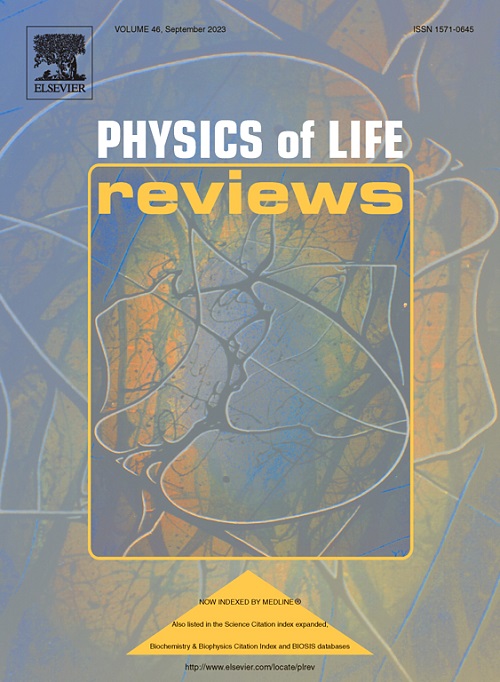PLRev 20 周年特刊 "AI for Mechanomedicine "特邀评论。
IF 13.7
1区 生物学
Q1 BIOLOGY
引用次数: 0
摘要
机械医学是一个跨学科领域,它结合了生物力学、机械生物学以及机械诊断和机械治疗等临床应用等不同领域。人工智能(AI)的出现彻底改变了机械医学,为分析机械与生物之间复杂的相互作用提供了先进的工具。本综述将探讨人工智能如何在四个关键方面影响机械医学,即生物力学、机械生物学、机械诊断和机械疗法。人工智能提高了生物力学表征和模型的准确性,加深了对细胞机械传导途径的理解,并通过机械诊断实现了早期疾病检测。此外,人工智能还能优化机械疗法,根据患者的实时数据制定个性化治疗策略,以生物力学特征和机械生物学标志物为目标。即使取得了这些进步,挑战依然存在,特别是在数据质量和将人工智能融入临床实践的伦理方面。人工智能与机械医学的结合具有变革潜力,可实现更准确的诊断和个性化治疗,并发现新的机械生物学途径。本文章由计算机程序翻译,如有差异,请以英文原文为准。
Invited Review for 20th Anniversary Special Issue of PLRev “AI for Mechanomedicine”
Mechanomedicine is an interdisciplinary field that combines different areas including biomechanics, mechanobiology, and clinical applications like mechanodiagnosis and mechanotherapy. The emergence of artificial intelligence (AI) has revolutionized mechanomedicine, providing advanced tools to analyze the complex interactions between mechanics and biology. This review explores how AI impacts mechanomedicine across four key aspects, i.e., biomechanics, mechanobiology, mechanodiagnosis, and mechanotherapy. AI improves the accuracy of biomechanical characterizations and models, deepens the understanding of cellular mechanotransduction pathways, and enables early disease detection through mechanodiagnosis. In addition, AI optimizes mechanotherapy that targets biomechanical features and mechanobiological markers by personalizing treatment strategies based on real-time patient data. Even with these advancements, challenges still exist, particularly in data quality and the ethical integration into AI in clinical practice. The integration of AI with mechanomedicine offers transformative potential, enabling more accurate diagnostics and personalized treatments, and discovering novel mechanobiological pathways.
求助全文
通过发布文献求助,成功后即可免费获取论文全文。
去求助
来源期刊

Physics of Life Reviews
生物-生物物理
CiteScore
20.30
自引率
14.50%
发文量
52
审稿时长
8 days
期刊介绍:
Physics of Life Reviews, published quarterly, is an international journal dedicated to review articles on the physics of living systems, complex phenomena in biological systems, and related fields including artificial life, robotics, mathematical bio-semiotics, and artificial intelligent systems. Serving as a unifying force across disciplines, the journal explores living systems comprehensively—from molecules to populations, genetics to mind, and artificial systems modeling these phenomena. Inviting reviews from actively engaged researchers, the journal seeks broad, critical, and accessible contributions that address recent progress and sometimes controversial accounts in the field.
 求助内容:
求助内容: 应助结果提醒方式:
应助结果提醒方式:


